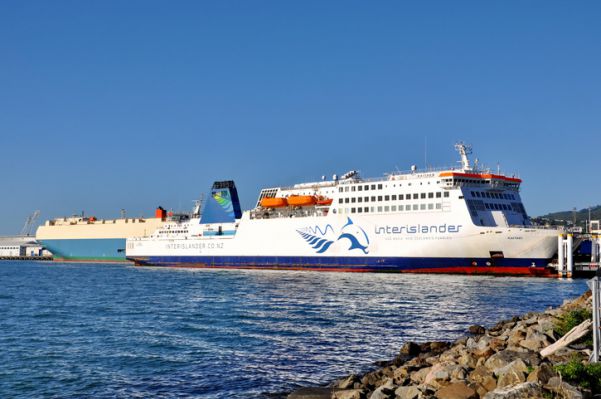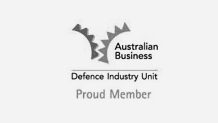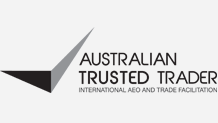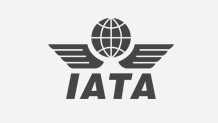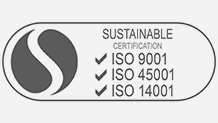Fracht Australia Logistics News - May 2025
29/4/2025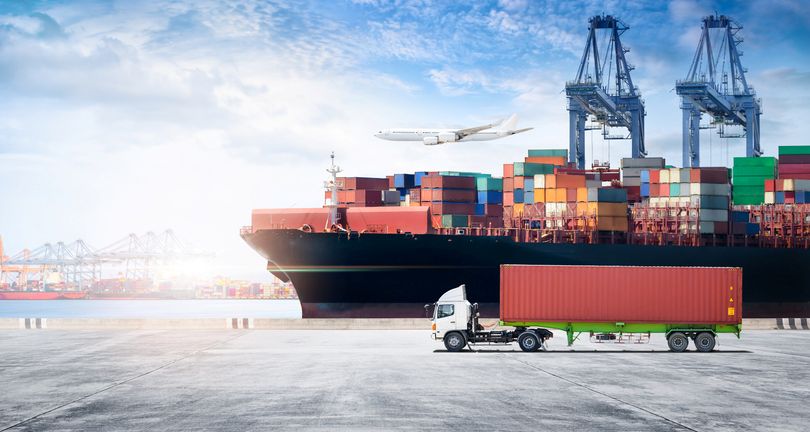
"Politics is too serious a matter to be left to the politicians."
- Charles de Gaulle
AROUND THE WORLD
- TRADE BETWEEN THE US AND CHINA HAS SHARPLY DECLINED amid President Trump’s escalating tariff war, prompting container lines to cancel sailings on a scale greater than during the early COVID-19 pandemic. In April 2025, more than 80 blank sailings were recorded - up from 51 in May 2020 - highlighting the severe disruption to global shipping. China's response, with 125% tariffs on US goods following the US’s cumulative 145% tariffs, has effectively stalled trade between the two economies. Blank sailings, where carriers skip scheduled port calls due to low demand, are now being used extensively. Sea-Intelligence data shows demand on the Asia–US West Coast route is expected to drop 28% in week 18, with a 42% decline projected for the East Coast in week 19. These cancellations reflect shippers halting or cancelling shipments in response to the trade war. Judah Levine of Freightos warns that rerouting shipments from non-China origins will challenge carriers and cause delays, as containers remain concentrated in China. Smaller, niche carriers are particularly vulnerable, heavily reliant on Chinese cargo and unable to quickly adapt, with some facing potential service shutdowns. The trade war’s fallout is reshaping global shipping, with widespread operational and economic consequences.
- MPA AND WARTSILA RENEW DECARBONISATION PARTNERSHIP. The Maritime and Port Authority of Singapore (MPA) has announced it has renewed its partnership with marine technology company Wärtsilä. The MPA confirmed the Finnish company will introduce the Methanol Power and Control simulation model in partnership with the Maritime Energy Training Facility and Wavelink Maritime Institute.
- TIGHTER EU IMPORT REQUIREMENTS PROVING A CHALLENGE. Commencing 1 April, the EU has ramped-up its Import Control System 2 (ICS2) – an advance cargo information system designed to improve supply chain security – on requirements for all non-EU imports. It will become mandatory for all house-level filers (freight forwarders, importers, ground handling agents, etc) to connect to ICS2 and submit entry summary declarations (ENS), filings for shipments they handle. The pre-arrival Customs process will also now apply to all transport modes, including road and rail, in addition to the existing air, maritime, and inland waterway requirements.
- US ACKNOWLEDGES PANAMA’S CANAL RIGHTS. Following a period of the posturing - including a threat to “take back” the Panama Canal – the US has signed an agreement with Panamanian Government over the waterway’s future. A joint declaration on security matters was signed last week by the Minister for Canal Affairs of Panama and the United States Secretary of Defense, which reaffirms respect for, and the recognition of, Panamanian sovereignty over the interoceanic waterway, as well as compliance with the Neutrality Treaty and the legal framework governing its operation.
- TEMPORARY TARIFF RELIEF brings on early transpacific peak season. The container peak season on the transpacific trade could start as early as April – the latest tariff rollback from President Trump at the end of last week for electronic consumer goods likely to prompt a new wave of ex-Asia bookings. The Loadstar reports that shippers in countries such as Taiwan and Malaysia are already rushing to ship as many products within the 90-day window as possible.
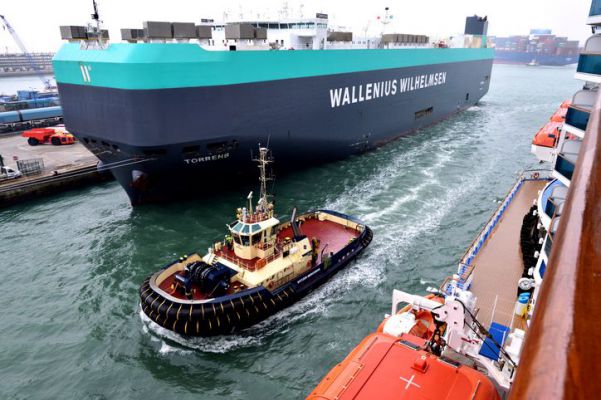
SEAFREIGHT NEWS
- The US Trade Representative (USTR) has announced a new port fee structure targeting China-linked shipping, sparking strong backlash from Beijing, Hong Kong, and the global shipping industry. The revised plan, less aggressive than a February proposal, imposes fees on non-US-built ships starting in October 2025. These include charges of USD18 to USD33 per net ton or USD120 to USD250 per container by 2028, and USD150 per vehicle for car carriers, with a maximum of six charges per year per ship. Exemptions apply to smaller vessels, certain routes, and specific ship types. Chinese operators face harsher penalties, beginning at USD50 per net ton and increasing by USD30 annually for three years. Despite being narrowed, the proposal still affects 7–9% of port calls in 2024, down from over 40% under the original plan. Analysts expect limited impact on US exports like oil, gas, and grains, while container and car carriers will feel more disruption. Shipping groups, including the World Shipping Council (WSC), criticised the fees for raising consumer costs and distorting competition. The US is also accused of overstepping legal authority and pursuing protectionist policies. China’s Ministry of Commerce condemned the move as discriminatory and vowed to respond, while COSCO warned the measures threaten global shipping stability. Industry players, including members of the Ocean Alliance - COSCO, OOCL, CMA CGM, and Evergreen - may adjust operations to avoid US charges. Some Hong Kong-based shipowners are considering reflagging vessels, and German and other European shipping leaders voiced concern over rising costs and political interference. The global industry is now reassessing charter agreements and alliance structures in response to what many see as a disruptive and politically motivated policy.
- WW EXTENDS CONTRACTS amidst Trump uncertainty. Wallenius Wilhelmsen has renewed a shipping contract with a European based automotive manufacturer, lasting five years, just as the automotive industry begins to come to terms with the Trump Administration’s unilateral imposition of proposed tariffs on vehicle imports. “We are pleased to announce this multi-year agreement with a long-term customer strengthening our existing partnership. This demonstrates their commitment to securing long-term ocean capacity and enables us to deliver best-in-class service helping our customer reach their ambitions,” CCO Pia Synnerman said.
- FORTUNE TAKES A TURN FOR HOEGH AUTOLINERS with a wave of tariffs. Höegh Autoliners, like other car-carrier operators, has had an enjoyable few years of booming demand met with scant capacity, leading to a flurry of newbuild ordering. But with considerable exposure to the US export market, and an orderbook of advanced ammonia-fuelled newbuilds on the way from Chinese yards, Höegh could now be facing a rapid reversal of fortunes. US car exports form a high proportion of Höegh’s business, CEO Andreas Enger admitted, but he was keen to reassure the industry that the changes would be manageable.
- LONGEVITY OF POST CNY SLUMP catches container trades by surprise. Two months on from Chinese New Year and the traditional post-holiday blip shows no sign of abating on Asia-Europe routes, with the container freight volumes continuing to drop. Industry sources advised that the market was impacted by a multitude of negative influences, such as fallouts from the rates surge prompted over the past 12 months by the Red Sea Crisis, as well as suggestions that the global economy has been in recession since the fourth quarter of 2022, and a general weakening of the supply / demand balance.
- NORSEPOWER PARTNERS WITH COSCO ON ROTOR SAILS. Wind propulsion developer Norsepower has announced the signing of a strategic Memorandum of Understanding (MOU) agreement with COSCO Shipping Heavy Industry Equipment (Nantong) Co (CHIC). The MoU is intended to accelerate the serial production, sales, installation, and service of Norsepower Rotor Sails in the region. The partnership aims to provide shipping companies with practical, cost-effective solutions to reduce fuel consumption and emissions in line with tightening IMO regulations.
- IMO SETTLES ON DRAFT REGULATIONS for fuels and emissions. The IMO Net-zero Framework will combine mandatory emissions limits and GHG pricing across an entire industry sector and is claimed to be the first to do so. These measures, set to be formally adopted in October 2025 before entry into force in 2027, will become mandatory for large ocean-going ships over 5,000 gross tonnage, which emit 85% of the total CO2 emissions from international shipping. Key elements of the IMO Net-zero Framework include requirements of ships to comply with global fuel standards, with clear reduction standards of annual greenhouse gas fuel intensity (GFI), and implementation of global economic measures, where ships emitting above GIF thresholds having to acquire remedial units to balance its deficit emissions, while those using zero or near-zero GHG technologies being eligible for financial rewards.
AIRFREIGHT NEWS
- AIR CARGO DEMAND registers slight decline in February. Air cargo registered its first year-on-year decline in February since March 2023 as a result of “extraordinary” growth a year ago. The latest supply and demand statistics from IATA show that air cargo demand decreased by 0.1% in cargo tonne km (CTK) terms in February. However, it wasn’t all bad news for the industry as the cargo load factor actually improved by 0.1 percentage points compared with a year ago to 45% due to a 0.4% decline in capacity supply. On regional performance, Asia Pacific airlines registered a 5.1% year-on-year increase in demand in February and capacity increased by 2.7% year on year.
- AIR CARGO RATES ON THE RISE ahead of next round of US tariffs. Airfreight rates continued to rise at the end of March, as firms looked to move goods before the US announced its most far-reaching range of tariffs yet. Index figures calculated by data house TAC showed that overall prices were up 5.1% compared with a year ago. Rates out of Frankfurt increased 8.3% week on week and are up 28.2% year on year.
- RECRUITMENT AND RETENTION in the air cargo industry is still at crisis point with 59% of air cargo workers having considered leaving the industry altogether, according to new research. The survey by Edge Insight on behalf of IBS Software found 26% of respondents have considered leaving the industry specifically due to burnout or work-related stress. Meanwhile, 22% of air cargo workers feel they have limited career progression opportunities in their roles and 16% believe their contributions are overlooked by the wider cargo ecosystem.
OCEANIA PORTS
- NEW KIWI FERRIES WILL HAVE RAIL CAPACITY. The New Zealand Government has unveiled more about its chosen Cook Strait ferries, after Cabinet signed off on preferred vessel and infrastructure options. By Christmas 2029, two new Interislander ferries will enter service on the Strait. These ferries will be about 200 metres in length, and about 28 metres in width. That is longer and wider than the current Interislander fleet. The Cook Strait is also an essential connection for the movement of New Zealand goods and services. It has a freight task to serve, and these ferries will do exactly that. Trucks will drive onto these ferries. Rail will shunt onto these ferries. Both ferries will have 2.4 kilometres of lanes for trucks and cars, with space for 40 rail wagons.
- TOWNSVILLE TRADE DROPS IN FEBRUARY. Container throughput at the Port of Townsville for February was down on January’s numbers, according to the latest available trade statistics from the port. Through the month, a total of 3,794 TEU (twenty foot equivalent unit) passed through the port which was down 21.3% month to month. Throughput was also down 11% on February 2024. Looking at container trade, full imports were 1,411 TEU, down from January’s 2,364 TEU and a drop of 7.1% year on year. Full exports amounted to 1,140 TEU departing the port during the month, down 232 TEU from the previous month (1,372 TEU). Exports were also down from the corresponding period in 2024 by 9.8%.
- THE AUSTRALIAN COMPETITION & CONSUMER COMMISSION (ACCC) has announced it will not oppose Qube Holdings proposed acquisition of Melbourne International RoRo (roll-on, roll-off) and Auto Terminal Pty Ltd (MIRRAT), after accepting a court-enforceable undertaking to remedy competition concerns, which prevents Qube, its subsidiary Australian Amalgamated Terminals Pty Ltd (AAT) and MIRRAT from discriminating against downstream rivals at Webb Dock West at the Port of Melbourne. The ACCC said the undertaking also imposes additional obligations on AAT in relation to its operations at Port Kembla in NSW, Fisherman Islands in Queensland, and Appleton Dock in Melbourne. Qube welcomed the decision regarding MIRRAT, the only dedicated roll-on, roll-off terminal servicing the Victorian market.
- THE MARITIME UNION OF AUSTRALIA (MUA) has hailed “massive wins” for wharfies delivered by new employment agreements voted up by MUA members at Qube ports workplaces. The union said the agreements have now been “overwhelmingly “endorsed through ballots and meetings of MUA members in every state across Australia. The endorsement of the new agreements reportedly delivers a four-year term, with 5.5% pay increases each year, along with significant rostering and fatigue improvements which the union said will provide a better work-life balance for over 1,000 wharfies across Australia.
- MARCH TONNAGE UP at Pilbara Ports. Throughput of 69.5 million tonnes at Pilbara Ports in March was up 4% compared to March 2024. Pilbara Ports encompasses the ports of Ashburton, Dampier, Port Hedland and Varanus Island. The report said Port Hedland had achieved a monthly throughput of 51.5Mt, a 2% increase in total throughput compared to March 2024. Imports through the Port of Port Hedland totalled 171,000 tonnes, an increase of 4% compared to March 2024. The Port of Dampier delivered a total throughput of 15.7Mt, a 1% decrease from March 2024. Imports through the Port of Dampier totaled 93,000 tonnes, a decrease of 23% from March 2024.
CUSTOMER SERVICE
If you would like further information about any of the above items, please contact one of our friendly Fracht Team members at fracht@frachtsyd.com.au






